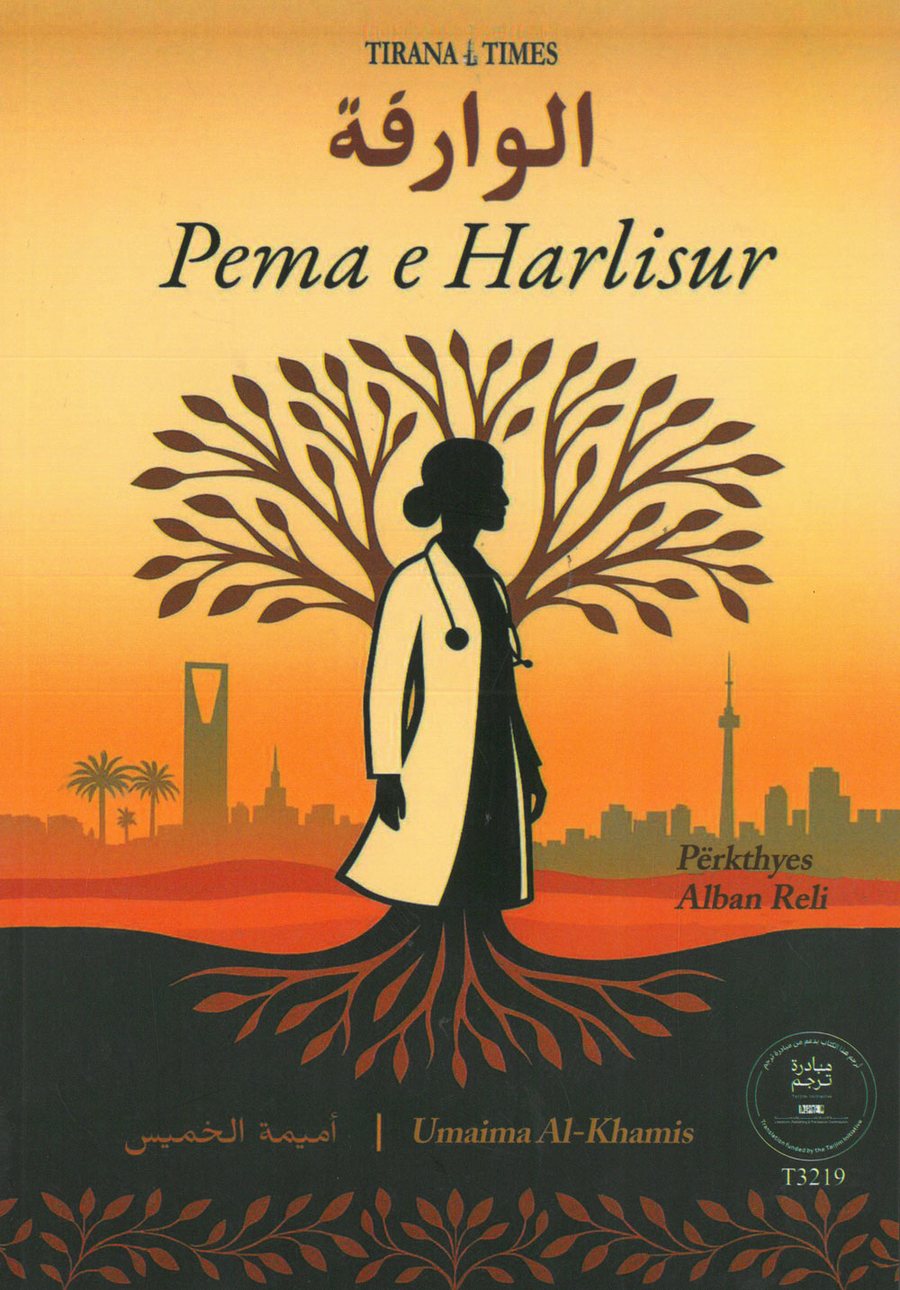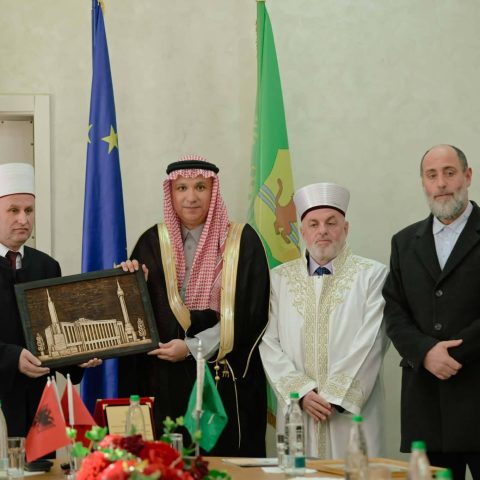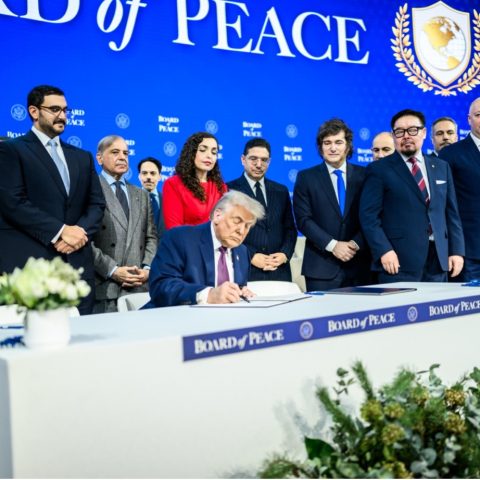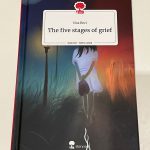Alban Reli
As the translator from Arabic to Albanian of the novel ‘The Leafy Tree’(Albanian: ‘Pema e harlisur’) by the Saudi writer Umaima al-Khamis, I am happy to present to Albanian readers the Albanian-language edition of this book, published by Tirana Times. The book was first presented to the public during the Saudi Cultural Week in Tirana (16–20 September), at the Palace of Congresses, marking a meaningful step in the literary dialogue between Albania and the Arab world.
Al-Khamis—one of the most recognized voices in contemporary Saudi literature—writes in a style that moves skilfully between realism and allegory, giving voice to women’s inner worlds amid the social transformations of Riyadh at the end of the twentieth century. This edition invites the Albanian reader to encounter a story that is locally rooted yet universally resonant.
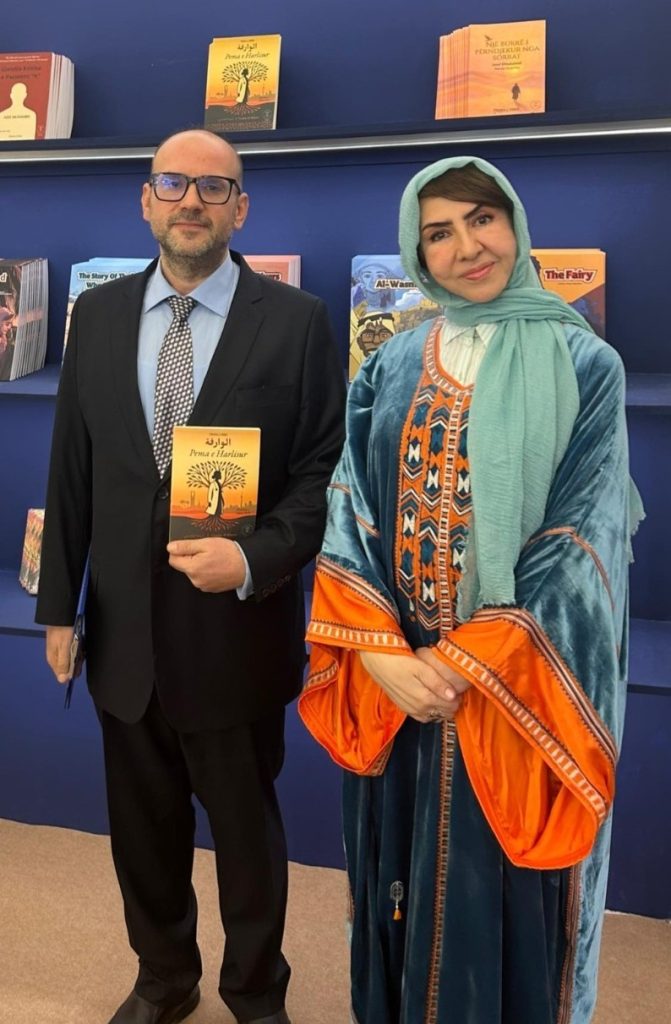
Employing a first-person narrative, the novel places at its center Jawhara, a Saudi endocrinologist in Riyadh, whose inner voice drives the narrative.It unfolds non-linearly through childhood, education, and professional life, allowing the reader to encounter not merely a sequence of events but a richly woven tapestry of memories, emotions, and reflections.
This novel offers a moving narrative that makes one feel, experience, reflect, and understand. It is an emotional story about life and death, hope and disappointment, joy and sorrow, success and failure, endeavour and triumph. It is a fascinating account of human life and society, with its varied cultural and spiritual dimensions, revealed through the life journey of the heroine, Jawhara —from the heart of the ancient Arabian Peninsula, in the city of Riyadh, to the “New World” in the city of Toronto. All this comes to the reader through a rich gallery of characters whom the author, Umaima al-Khamis, introduces from different parts of the world, from East and West, who accompany the heroine through the various stages of her life’s journey, growth, formation, and self-affirmation.
The diversity of characters from different countries is truly extensive, giving the novel its breathing space and allowing it to present a range of human stories—stories that differ precisely because the characters come from distinct geographic and cultural worlds and thus face different experiences and challenges in life. One could say the novel is a demographic-psychological map of the world. Adriana from New Zealand; Kariman Bukhari from Central Asia; Jiya from Toronto; Liberman, an Ashkenazi Canadian with European roots—figures united by the medical profession yet shaped by entirely different cultures and mindsets—all are woven into a single connective thread in Jawhara’s story, through her narration and the way she perceives the world. Equally compelling are the portrayals of ordinary people: Pablo, the driver from the Philippines, Ani and Seida, the two Indonesian domestic workers, and Ubaid of Afro-Sudanese origin. Several chapters bear the names of these contrasting characters, whom Jawhara —the girl from the Ulaishahneighbourhood of Riyadh—places within a context of encounters and dialogue between civilizations. The meeting of such varied characters from different worlds recalls to the reader, the encounters with the Other—meetings that raise not only existential questions but also serve as a testing of the integrity of the self, revealing how fragile, and how tenacious, autonomy could be.

An added value of the novel lies in its introduction to Albanian readers of a reality that is almost unknown, offering a masterful portrayal of Saudi society in general and of the Saudi woman in particular. The novel unfolds before the Albanian reader the world of the Saudi woman in all its dimensions—spiritual, emotional, familial, and professional. The author does not idealize this world; she presents it in all its complexity through a range of female characters, sometimes in sharp contrast, who, although living in the same city, inhabit their own distinct worlds and convey the inevitable transformations across time and space.
Private space occupies a central place in the novel. The heroine, Jawhara, strives to secure “a room of her own”—both in the physical and intellectual sense—a room through which she can also secure her autonomy. In the novel, this private spaceis continually negotiated in the hospital ward, in the family courtyard, in the classroom, and in the street. Each space appears as a test of what is permitted, what is possible, and what is necessary for a woman seeking to define her life on her own terms.
Alongside this feminine world, the author presents a Saudi masculine world as seen from a female perspective. Through characters drawn from different social strata and professions, she presents a typology of men that is not unfamiliar to us in Albania.
For Albanian readers of world literature, the book opens a door to contemporary Arab letters. It broadens horizons beyond Western literature. The book is a mirror of a little-known culture, allowing us to see the Arab world beyond news headlines and stereotypes. The novel is also a rare and rich aesthetic experience—a literature that interweaves poetry with narrative, memory, and philosophy. ‘The Leafy Tree’is a Saudi story and, at the same time, a universal one—well worth reading, and rereading.

